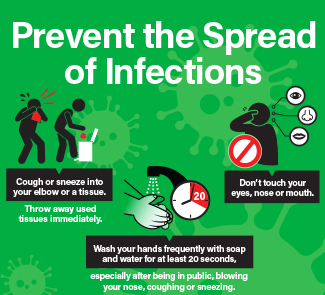Importance of Disease Outbreak Prevention

Disease outbreak prevention is essential to protect public health and prevent the spread of infectious diseases. The consequences of a disease outbreak can be severe, including:
- Mortality and Morbidity: Disease outbreaks can result in significant numbers of cases and deaths, particularly among vulnerable populations such as the elderly, children, and those with underlying health conditions.
- Economic Disruption: Disease outbreaks can lead to significant economic losses, including costs related to healthcare, lost productivity, and impact on trade and tourism.
- Social Disruption: Disease outbreaks can cause significant social disruption, including school closures, travel restrictions, and community lockdowns.
- Long-term Consequences: Some disease outbreaks can have long-term consequences, including increased risk of chronic diseases, mental health problems, and social and economic inequality.
Factors that Contribute to Disease Outbreaks
Several factors contribute to disease outbreaks, including:
- Microbial Adaptation: The ability of microorganisms to adapt to their environment and evade the host’s immune system can lead to disease outbreaks.
- Globalization and Travel: The increased movement of people, goods, and services around the world has created opportunities for infectious diseases to spread rapidly across borders.
- Climate Change: Climate change can lead to changes in temperature, precipitation, and other environmental factors that can facilitate the spread of infectious diseases.
- Poor Public Health Infrastructure: Inadequate public health infrastructure, including lack of access to healthcare, poor sanitation, and inadequate surveillance, can contribute to disease outbreaks.
- Human Behavior: Human behavior, including poor hygiene practices, lack of vaccination, and inadequate use of personal protective equipment, can contribute to disease outbreaks.
Strategies for Preventing and Controlling Disease Outbreaks
Preventing and controlling disease outbreaks requires a comprehensive approach that involves various stakeholders and strategies, including:
- Vaccination: Vaccination is one of the most effective ways to prevent infectious diseases. Vaccines can help prevent the spread of diseases and reduce the severity of symptoms.
- Surveillance and Monitoring: Surveillance and monitoring are critical to detecting and responding to disease outbreaks. This includes collecting and analyzing data on disease incidence, tracking outbreaks, and identifying risk factors.
- Infection Control: Infection control measures, including proper hygiene practices, use of personal protective equipment, and isolation of infected individuals, can help prevent the spread of diseases.
- Public Health Education: Public health education can help raise awareness about disease outbreaks, promote healthy behaviors, and encourage individuals to take preventive measures.
- Research and Development: Research and development of new diagnostic tools, treatments, and vaccines are critical to responding to emerging disease outbreaks.
- Global Cooperation: Global cooperation and coordination are essential to responding to disease outbreaks, including sharing information, coordinating response efforts, and providing support to affected countries.
Role of Governments and Healthcare Professionals
Governments and healthcare professionals play a critical role in preventing and controlling disease outbreaks, including:
- Developing and Implementing Public Health Policies: Governments and healthcare professionals can develop and implement public health policies, including vaccination policies, infection control guidelines, and emergency response plans.
- Providing Healthcare Services: Healthcare professionals can provide healthcare services, including diagnosis, treatment, and care, to individuals affected by disease outbreaks.
- Conducting Surveillance and Monitoring: Governments and healthcare professionals can conduct surveillance and monitoring to detect and respond to disease outbreaks.
- Promoting Public Health Education: Governments and healthcare professionals can promote public health education to raise awareness about disease outbreaks and promote healthy behaviors.
Role of Individuals
Individuals also play a critical role in preventing and controlling disease outbreaks, including:
- Practicing Good Hygiene: Individuals can practice good hygiene, including washing hands regularly, covering mouths and noses when coughing or sneezing, and avoiding close contact with individuals who are sick.
- Getting Vaccinated: Individuals can get vaccinated against infectious diseases, including influenza, measles, and COVID-19.
- Staying Informed: Individuals can stay informed about disease outbreaks, including symptoms, transmission, and prevention measures.
- Seeking Medical Care: Individuals can seek medical care if they are experiencing symptoms of a disease outbreak.
Frequently Asked Questions (FAQs)
- What is a disease outbreak?: A disease outbreak is the occurrence of a disease in a population that is significantly higher than what is normally expected.
- How can I prevent disease outbreaks?: You can prevent disease outbreaks by practicing good hygiene, getting vaccinated, and staying informed about disease outbreaks.
- What are the most common disease outbreaks?: The most common disease outbreaks include influenza, measles, COVID-19, and foodborne illnesses.
- How can I protect myself and my family from disease outbreaks?: You can protect yourself and your family from disease outbreaks by practicing good hygiene, getting vaccinated, and staying informed about disease outbreaks.
- What is the role of governments and healthcare professionals in preventing and controlling disease outbreaks?: Governments and healthcare professionals play a critical role in preventing and controlling disease outbreaks, including developing and implementing public health policies, providing healthcare services, conducting surveillance and monitoring, and promoting public health education.
Conclusion
Disease outbreak prevention is a critical component of public health, and it requires a comprehensive approach that involves various stakeholders, including governments, healthcare professionals, and individuals. The prevention of disease outbreaks is essential to protect public health, prevent the spread of infectious diseases, and reduce the socioeconomic impact of disease outbreaks. By understanding the factors that contribute to disease outbreaks, implementing strategies for preventing and controlling disease outbreaks, and promoting public health education, we can reduce the risk of disease outbreaks and protect public health. It is essential for individuals, governments, and healthcare professionals to work together to prevent and control disease outbreaks, and to stay informed about the latest developments in disease outbreak prevention and control. By doing so, we can create a safer and healthier world for everyone.
Closure
Thus, we hope this article has provided valuable insights into Disease outbreak prevention. We hope you find this article informative and beneficial. See you in our next article!